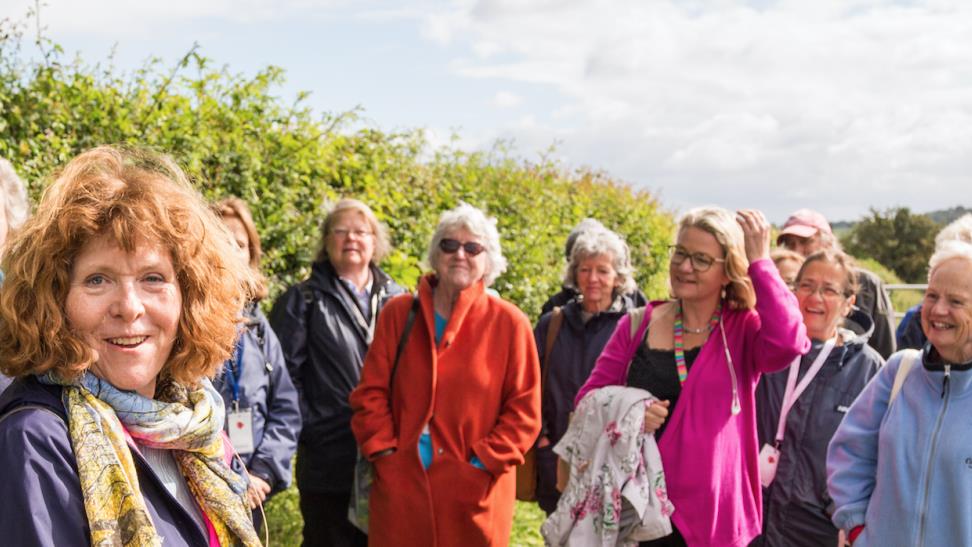
Today's trail was led by Fiona Stafford, Professor of English at Oxford, exploring the poetry and art of flowers. The author of The Brief Life of Flowers spoke of how their beauty has inspired some of the greatest works of art and literature, from Ovid to O'Keefe, Wordsworth to Van Gogh. She cited the example of foxgloves, which have long been used medicinally, but only in the 18th century, when a Shropshire doctor looked at each ingredient in a 'healing tonic' recipe, did its specific healing properties for the heart become known. We know that its curative powers were taught at medical schools because there are references to this in the notebooks of John Keats, which have been preserved.
Admiring some Welsh poppies, Stafford talked about how we associate these flowers with WW1 and how, when we see them, the resonance of that association is part of the way we perceive the delicacy of the falling petals. From Greek mythology to the Wizard of Oz, opium poppies have represented painless sleep.
The series of Wayfaring Walks looks at the ways in which writers and artists have responded to the natural world and how we understand ourselves in it.
If you like watching Hay Festival events digitally please sign up to the Hay Player for more from the world’s greatest thinkers.
Picture by Matt Harry